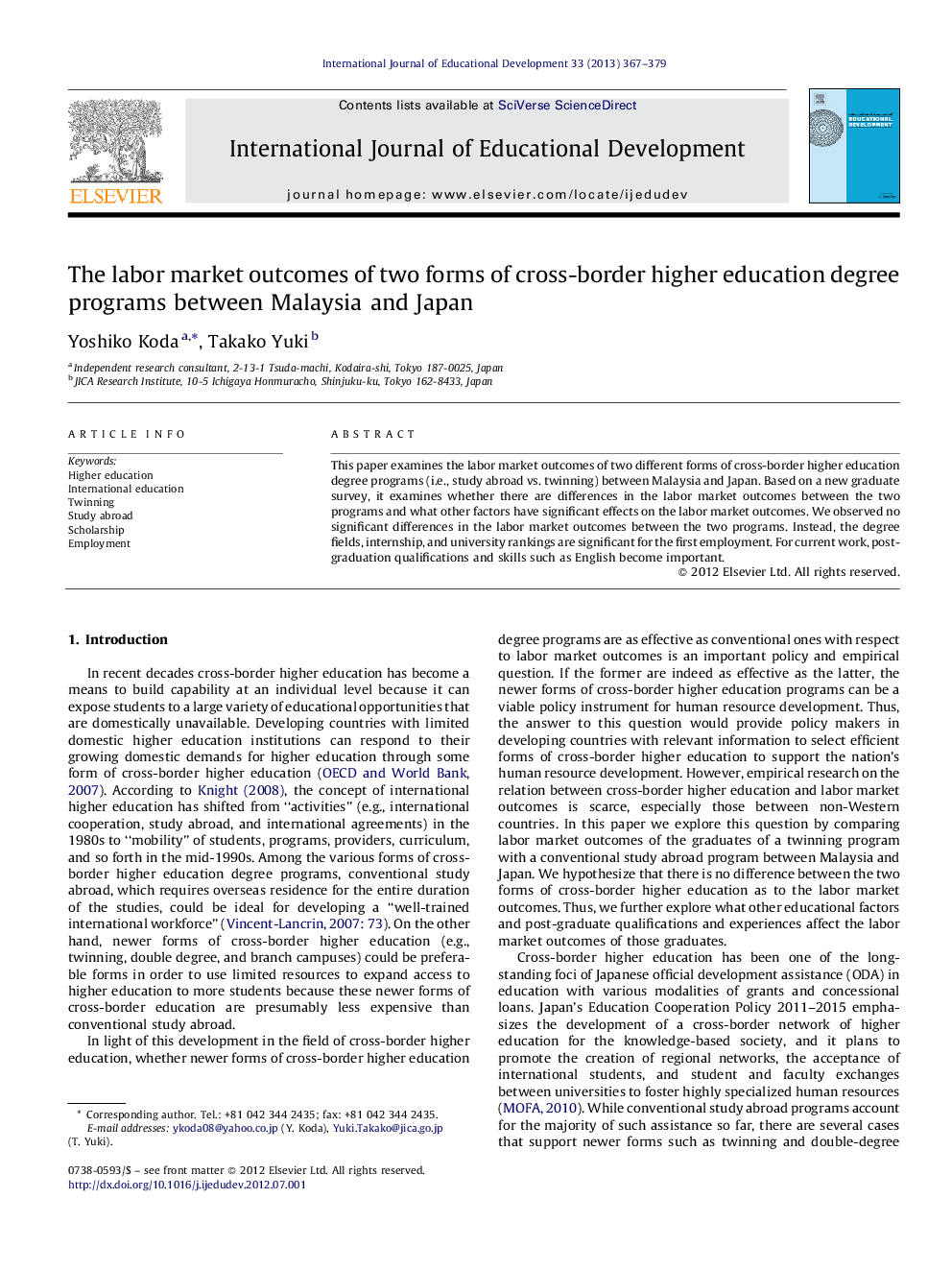| Article ID | Journal | Published Year | Pages | File Type |
|---|---|---|---|---|
| 356109 | International Journal of Educational Development | 2013 | 13 Pages |
This paper examines the labor market outcomes of two different forms of cross-border higher education degree programs (i.e., study abroad vs. twinning) between Malaysia and Japan. Based on a new graduate survey, it examines whether there are differences in the labor market outcomes between the two programs and what other factors have significant effects on the labor market outcomes. We observed no significant differences in the labor market outcomes between the two programs. Instead, the degree fields, internship, and university rankings are significant for the first employment. For current work, post-graduation qualifications and skills such as English become important.
► Labor market outcomes of the study abroad and twinning programs are examined. ► No differences in early employment are observed between the two programs. ► No differences in current positions and salary are observed between the programs. ► Degree subjects have positive effects on early employment. ► English and Japanese proficiency have positive effects on current salary.
